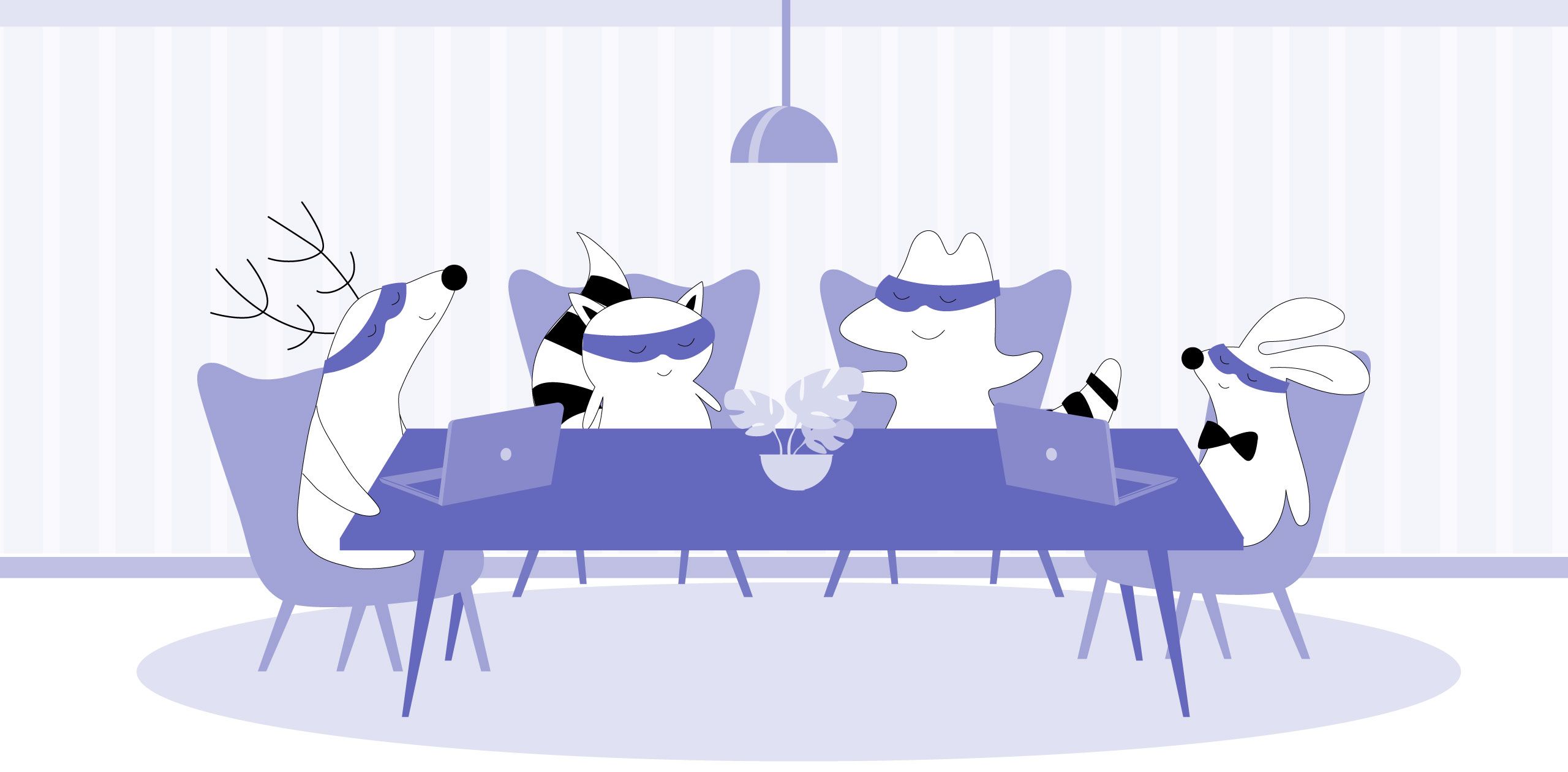
In order to properly speak German like a native, you need to know not just the basic vocabulary, but also idiomatic expressions and slang words. After all, slang words and phrases in German are often untranslatable into English, so it can be easy to misuse or misunderstand them.
So, in order to understand the context in which Germans use slang, you need to be familiar with common expressions and their meanings. Fortunately, this is not a daunting task – learning German slang words can be fun. Some of the expressions can be amusing and funny, which makes them even easier to remember.
With that in mind, let’s take a look at some of the most commonly used slang words and phrases in the German language. Read on, familiarize yourself with this interesting part of the German vocabulary – and have fun.
10 Everyday German Slang Words
Before we go to the long vocabulary lists, let’s discuss the ten words that native German speakers use most often. Knowing these will already help you boost your language skills and communicate more freely when visiting a German-speaking country.
Here they are:
Alter!
Alter is a German word that can be translated as “old man”. It actually comes from a longer term, “Alter Schwede” which translates to “old Swedish man” – but it’s mostly used in the form of the English colloquial “man,” “mate, or “dude.”
This word can be used in a variety of ways You can use it to greet someone, approach a friend, express surprise or disbelief in something, or to add effect to what you’re saying. For example:
Native
Translation
Alter, ich habe schon wieder meine Schlüssel zu Hause vergessen!
Man, I forgot my keys at home again!
Alter, was hast du getan?
Dude, what have you done?
Assi
The closest English alternative to this German slang word would be “trashy” or “chavvy.” In German, it is short for “antisocial” and can be used both to talk about people and things.
When used with people, it is an insult used to show that someone is unemployed, uneducated, and without manners. When used with things, on the other hand, it shows that something is of poor quality or is undesirable. Remember that this word has a pretty negative meaning, so be careful when using it.
Native
Translation
Diese Jeans sehen assi.
These jeans look trashy.

Moin
This is a phrase that you might have already come across when learning German – either in our blog post about German greetings, or in a language class. This is a shortened form of the phrase “Guten Morgen” (good morning), used mostly in Northern Germany.
Today, many people use it regardless of the time of the day, when saying hello to a group of people, or even in informal emails.
Native
Translation
Moin! Wie ist dein Abend?
Hi! How is your evening?
Irre
You can translate this as “crazy,” “messed up,” or “nuts.” You might hear it a lot in Germany – people use it to describe both things and people.
Irre can be used both in negative and positive connotations, just like the English word “crazy.”
Native
Translation
Der Film war irre.
The film was crazy.
Ihr Ex-Freund ist irre.
Your ex-boyfriend is crazy (is a lunatic).
Krass
Krass in German is used to emphasize the intensity of an event or situation. You can say it to express how unbelievable, surprising, or extreme something is. Basically, people use this word to describe almost anything, whether good or bad.
A funny thing about this word is how you can use the same word to reply in two different ways.
Native
Translation
Unser Team hat gewonnen. – Krass! Lasst uns feiern gehen!
Our team won. – Cool! Let's go celebrate!
Unser Team hat verloren. – Krass! Ich habe so viel Geld auf sie gesetzt!
Our team lost. – Shit! I've put so much money on them!
Sometimes, understanding what exactly krass means can be challenging – to figure that out, look at the words surrounding it and the context of the sentence.

Quatsch
This is one of the least formal words on our list. It literally translates to “rubbish” or “junk,” and people use it when they think that what another person just said is nonsense. You may have already seen it in our article about German swear words.
Native
Translation
Was Sie sagen, ist völliger Quatsch.
What you're saying is complete nonsense.
Na?
This word is similar to the English “well?” or “so?” and is the shortest way of greeting someone or asking how they are doing. If you ever meet a German who says “Na?” to you and then continues staring, know that the best response would be telling how you are.
Na? can be combined with other helpful greeting phrases or words, such as:
Native
Translation
Na, alles gut?
Hi, all good?
Chillen
This funny word is basically the German equivalent for the English verb “chilling.” Just like the English slang words, it’s used to talk about the act of relaxing and doing nothing in particular, usually with friends or family.
Native
Translation
Was machen Sie da? – Ich chille.
What are you doing? – Just chilling.
German also has a similar sounding adjective, chillig, which is used to describe the relaxing atmosphere.
Native
Translation
Ich möchte nach dem Umzug etwas chillig machen.
I want to do something relaxing after moving.

Jein
This is a very popular word in Germany, and it doesn’t have a proper English translation. It is basically a combination of the two German words ja and nein used when someone can’t decide whether they want to say “yes” or “no” to something. In English, we might say “yes, but” or “no, but,” or maybe even “yeah, no,” depending on the situation.
Native
Translation
Hast du Lust, heute Abend ins Kino zu gehen? – Jein. Ich werde darüber nachdenken.
Do you want to go to the movies tonight? – Yeah, no. I'll think about it.
Bock Haben
This German slang phrase literally means “to have a goat,” but it is actually translated as “to be in the mood for something.”
You use it either in a negative or affirmative sentence to show your inclination or disinclination for doing something. If you’re completely against something, you can even say that you have “null Bock.”
Native
Translation
Ich habe keine Bock, heute Abend zu dieser Verabredung zu gehen.
I am in no mood to go to that date tonight.
Hast du Bock, weitere deutsche Slangausdrücke zu lernen?
Are you up for learning more German slang expressions?
If you answered “yes” to the last question, let’s dive deeper into the topic:
Other Popular German Slang Words
If ten words are not enough (and if you want to communicate with the German speakers fluently, they are not), it’s time to learn some other slang words. Here they are:
Native
Translation
Abdrehen
To go crazy
Abklatsch
A cheap copy
Balla-balla
Coo-coo
Betucht
Very rich
Betuppen
To betray someone
Betüddeln
To look after someone
Boah
Wow
Bonze
Rich person
Brüller
Very funny joke
Bummeln
To take one’s time
Dulli
Helpless or clumsy person
Etepetete
Fussy
Etwas peilen
To understand something
Faxen
Shenanigans
Funzen
To function
Gewieft
Cunning
Glipschig
Slimy
Horst, Pfosten, Förster, Hirni
Idiot
Igitt, Pfui
Urgh
Kess
Cheeky
Kiddies
Children
Kieken
To look
Kladderadatsch
Mess
Klette
A clingy person
Knabbern
To much
Kneipe
Bar
Kohle
Money
Lusche
Loser
Malochen
To work hard
Mutti
Mom
Naschis
Sweets
Papperlapapp
Nonsense
Paps
Dad
Passt schon
Whatever
Perso
ID
Pille-Palle
Easy-peasy
Prio
Priority
Pusemuckel
A place in the middle of nowhere
Putzig
Cute
Quali
Quality
Ranklotzen
To work to the max
Ruckzuck
Super fast
Räudig
Disgusting
Saugen
To download
Schlingel
Rascal
Schnuffig
Cuddly
Snacken
To snack
Telen
To phone
Versifft
Filthy
Vorglühen
To pre-game (to drink before going out to a party)
Zocken
To play
Unusual but Common German Slang Phrases

While knowing German slang words can be helpful for many language learners, it often can be easy to misunderstand them when used outside or in a phrase. After all, literal translation can differ quite a lot from the real meaning of a sentence. So here are the most common and unusual colloquial expressions used in the German language.
Check them out and enjoy:
| German | Literal Translation | English |
|---|---|---|
| Aalglatt | Smooth as an eel | Slick |
| Abgefahren | Driven off | Wicked |
| Abgespaced | Spaced out | Crazy |
| Auf keinsten | In the least (of cases) | No way |
| Backpfeife | Cheek pipe | A slap in the face |
| Blindfisch | Blind fish | Someone who doesn’t see well |
| Blitzmerker | A flash noticer | Someone who is slow to notice |
| Büffeln | To buffalo | To study |
| Durchkauen | To chew through | To talk something through repeatedly |
| Fackeln | To flicker | To hesitate |
| Faulpelz | Lazy fur | Lazy person |
| Ferkeln | To bear a little pig | To bear a child |
| Intelligenzbestie | Beast of intelligence | Egghead |
| Kein Ding | No thing | No problem |
| Kein Plan | No plan | No idea |
| Keine Ahnung | No suspicion | No idea |
| Kleinkariert | Small-plaid-patterned | Petty-minded |
| Kopfkino | Mental cinema | Head game |
| Kreischi | Screamy | A screaming fan |
| Labertasche | Talk bag | Chatterbox |
| Pumpen | To pump | To work out at the gym |
| Schnattern | To gaggle | To talk quickly |
Regional German Expressions and Words
Finally, let’s tackle the topic of the German regional slang expressions and words. It’s a common joke that a German speaker from one part of Germany can’t often understand someone from another part of the country – simply because the language differs so much.
So here are the most common regional phrases that should help you communicate with German native speakers depending on the country or city you’re visiting.
| German word | Region | Translation |
|---|---|---|
| Babbeln | Hessian | To talk |
| Bissel | Bavarian | A little |
| Blagen | Ruhr area | Annoying children |
| Bölken | Ruhr area | To yell |
| Ei Gude! | Hessian, Rhineland-Palatinate | Hello, Bye |
| Grüessech | West Switzerland | Hello |
| Grüezi | Eastern and Northern Switzerland | Hello |
| Grüß Gott! | Austrian, Southern | Hello |
| Lällebäbbel | Swabian | Fool |
| Lällegschwätz | Swabian | Chitchat |
| Lütt | Low German | Small |
| Moin | Northern | Hello |
| Moinsen | Northern | Hello |
| Sabbeln | Northern | To talk |
| Servus | Southern | Hello, Bye |
| Tach | Northern, Northrhein-Westfalian | Hello |
German Slang – a Path to German Culture
Though it may be challenging to learn German slang at first, it is a fun and easy way to get closer to the culture of Germany. By understanding how Germans speak informally, you can not only communicate better with them, but also learn more about their unique culture and quirks through their expressions.
So go out there and start using some of these funny phrases – and when you use them in spoken language, native speakers will certainly appreciate the effort. Don’t know how to do that? Consider practicing with Langster, where you can get to learn new vocabulary in context by reading short stories and news from all over the world.









